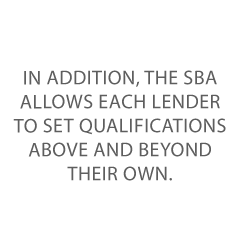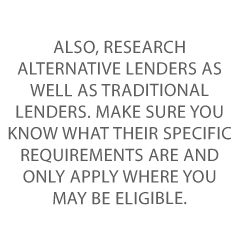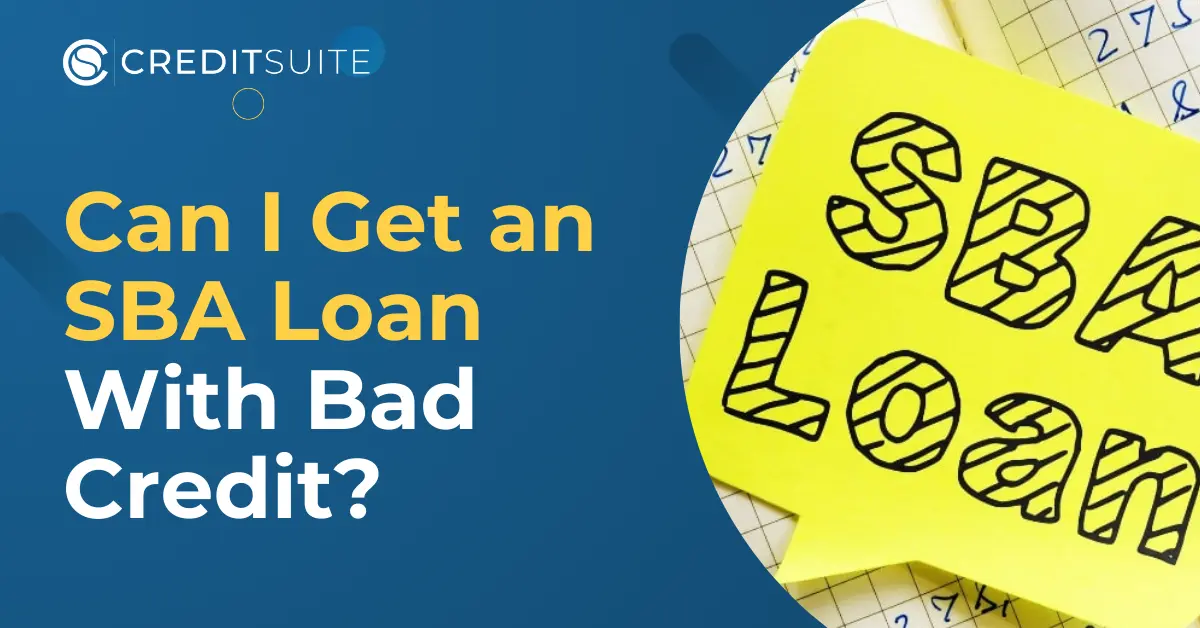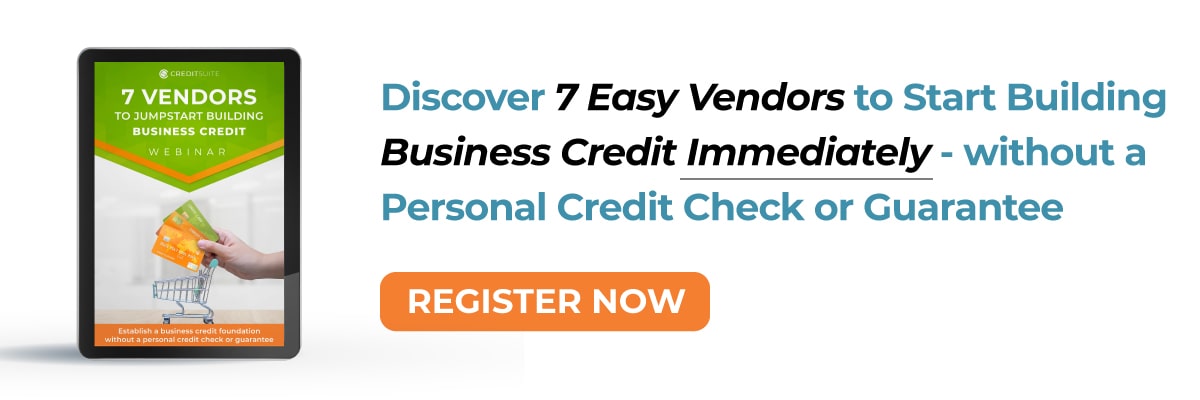Does the SBA give bad credit loans?
While they do not specifically designate their business loans as being for borrowers with bad credit, it is possible to be approved if you do have poor credit.
The typical FICO SBSS minimum credit score is 140, with higher approval rates coming if your score is above 160.
Your personal credit score is used in the calculation of your FICO SBSS score, but how much is dependent on the lender itself?
Your FICO SBSS could actually vary from lender to lender depending on how strongly they weigh your personal credit score in the calculation.
If you have bad credit, and the lender chooses to weigh your personal credit score heavily, you could have a problem.
What is the minimum credit score for an SBA loan?
The SBA uses FICO SBSS Scores, which run from 0 – 300. They do not approve an application for an SBA term loan program if the score is less than 140, but some lenders require a score as high as 160.
What disqualifies you from getting an SBA loan?
Not meeting requirements can disqualify you from an SBA loan. These include factors such as not meeting the minimum FICO SBSS score, not meeting small business size standards, not operating in the United States, or being in an ineligible industry.
These all disqualify you from an SBA loan.
Of course, businesses without owner equity and that have not exhausted all other financial options are not eligible for a term loan through SBA programs either.
The short answer is yes, you can get an SBA loan with bad credit. However, like most business funding, it’s not really that simple.
The SBA doesn’t really set a minimum personal credit score for small business loan funding qualification.
However, they do set a minimum FICO SBSS business credit score of 140 for business loans. You are more likely to get funding approval if your FICO SBSS is at least 160.
Here’s the complicated part. First, with the exception of SBA disaster loan funding, small business loans from the SBA are processed through partner lenders, not the SBA directly.
Second, your consumer credit score can affect your FICO SBSS, and the lender you use gets to decide how much or how little effect it has. That’s true for all business loans and funding.
In addition, the SBA allows each lender to set qualifications above and beyond their own. 
So, while one lender may not consider personal credit as heavily, another may require an exceptionally strong consumer credit score, barring those with bad credit from getting approval.
The result is, if you have bad personal credit, you may qualify for a bad credit business loan with one lender, but not with another.
The best option is to take every step possible to build up your other strengths and find a lender that doesn’t put as much emphasis on personal credit.
This is true regardless of whether you are looking for an SBA loan, a short-term loan, or a regular traditional loan. Online lenders are likely the best option for this.
Online lenders are known for making it easier to get a loan with a bad credit score or low credit score than a traditional lender would.
The only drawback is you are likely to pay more interest with an alternative lender. That said, some online lenders do offer SBA loans as well.
How to Get an SBA Loan with Bad Credit
While not a guarantee, these steps may increase your funding approval chances for a small business loan if your personal credit isn’t great.
a guarantee, these steps may increase your funding approval chances for a small business loan if your personal credit isn’t great.
Remember, however, that the stronger your personal credit is, the better your chances. Also, other financial factors can come into play, including current debt and cash flow.
Make sure you are doing all you can to improve your consumer credit score by making payments consistently on time and keeping your debt ratio below 30%.
Also, research alternative lenders as well as traditional lenders. Make sure you know what their specific requirements are and only apply where you may be eligible.
Keep in mind you may want to apply for other types of funding with them, maybe a business line, later.
A number of alternative lenders, like National Funding and Funding Circle, offer business loans backed by the SBA. Of course, many traditional lenders offer SBA business loans as well.
Fundability Foundation™
Your small business needs a Fundability Foundation™ to qualify f0r funding in the name of the business.
This includes vendor credit or a business credit card as well as a business line or business loans. The Foundation is how your business is set up.
A small business that isn’t set up for Fundability™ will be hard-pressed to get a small business loan at all, let alone a credit card or other financing, and building business credit will be impossible.
It includes the following.
- Separate, consistent business contact information
- EIN
- Incorporating
- Business licenses
- Web domain and professional website
- Business bank account in the business’s name
Due to the fact that business banking history is vital to getting business financing, it is necessary to have a separate, dedicated business bank account. Of course, the longer the bank’s history is, the better.
Establish Business Credit
If you already have strong business credit then you can skip this step. However, if you have bad business credit or no business credit at all, start here.
This is where you begin establishing a business credit history to increase the likelihood of being approved for a credit card and business loans.
This step involves finding vendor tradelines that you can get approval for that will report positive payment history to the business credit reporting agencies. We generally refer to these as starter vendors.
Typically, these are net accounts that may require a certain amount of time in business, some initial purchases, or a number of other factors before approval. They usually do not rely on credit history.
This lack of credit checks means you will usually be able to get them even if you have poor credit. Since they report, you will also be able to establish or strengthen already existing business credit, thus making poor credit on the personal report less of an issue.
Continue Adding Accounts to Build Stronger Business Credit
As you use starter vendor credit responsibly and your score on your business credit report grows, you should be able to add more variety to your business credit portfolio.
This may include business credit lines and business credit cards. If they report to the business credit bureaus, your score will only get stronger.
As a result, the effect bad credit on your personal report has on your business loan approval odds may decrease.
This can happen in a couple of ways. First, if your SBA lender sees a strong business credit history they may be more willing to relax a little on personal credit requirements.
Also, the stronger your business credit score is, the more it may counteract a bad personal credit score in the FICO SBSS calculation.
Application Considerations
Having a good relationship with a lender that is familiar with your business and its industry is helpful. Again, this is true of both traditional and alternative lenders.
It’s also important to research individual lender eligibility requirements so that you do not waste time applying with lenders you do not have a chance with.
In addition, make certain all business information is consistent and verifiable. You have to include your business name and address on the application.
Lenders will compare that information with information on file with the Secretary of State. Discrepancies will likely cause a denial.
Prepare
Before applying for small business financing, make certain you have all the required documents ready to go. Lenders should be able to supply you with a checklist of what will be needed.
They’ll want documentation showing you have the cash flow to repay the loan, among other things. Having everything prepared and ready to go makes their job easier.
This can only help you get business funding, and it will make the process faster in the long run.
How Bad Credit Affects SBA Qualifications
For Profit Business
Non-profit organizations are not eligible.
Inside the United States
The business must operate inside the United States.
Owner Equity Investment
Owners must have “skin in the game” so to speak. This includes both time and money.
Exhaust All Other Financial Options
This is sometimes misunderstood. Per the SBA website all it means is that: “The business cannot get funds from any other financial lender.”
So for example, if you have access to a merchant cash advance or invoice financing, you have to show need above and beyond those funds.
Must Qualify as Small Business
This is as determined by the SBA size standards for your specific industry. Size standards are related to both revenue and the number of employees.
Eligible Industry
High-risk and illegal industries may not be qualified to get business loans through the SBA. According to the Small Business Administration:
“Ineligible businesses include those engaged in illegal activities, loan packaging, speculation, multi-sales distribution, gambling, investment or lending, or where the owner is on parole.”
How Long Does It Take to Get an SBA Loan After Approval?
Actual approval time can take a few weeks up to even months. It depends on the specific small business loan program and the lender you use.
However, after approval, you can have your term loan funds in as little as a few days. Typically this is 4 or 5 days, but it can take up to 14.
It’s important to take this timing into account when making cash flow decisions.
Trying to get a business loan that is backed by the SBA is not easy, nor is it a good rapid finance option. However, that is due more to the paperwork and red tape involved than stringent requirements.
If you need funding and qualify, a business loan through a Small Business Administration program can be a great option, especially if you do not want to take out a personal loan.
Just remember, an SBA loan is not the only financing option you have. In fact, depending on your business credit score, you may have a ton of other choices.
You just have to find the best small business loan for your needs. There are other types of financing out there if one of the SBA programs will not work for your purposes right now.
FAQs
Does the SBA give bad credit loans?
While they do not specifically designate their business loans as being for borrowers with bad credit, it is possible to be approved if you do have poor credit.
The typical FICO SBSS minimum credit score is 140, with higher approval rates coming if your score is above 160.
Your personal credit score is used in the calculation of your FICO SBSS score, but how much is dependent on the lender itself?
Your FICO SBSS could actually vary from lender to lender depending on how strongly they weigh your personal credit score in the calculation.
If you have bad credit, and the lender chooses to weigh your personal credit score heavily, you could have a problem.
What is the minimum credit score for an SBA loan?
The SBA uses FICO SBSS Scores, which run from 0 – 300. They do not approve an application for an SBA term loan program if the score is less than 140, but some lenders require a score as high as 160.
What disqualifies you from getting an SBA loan?
Not meeting requirements can disqualify you from an SBA loan. These include factors such as not meeting the minimum FICO SBSS score, not meeting small business size standards, not operating in the United States, or being in an ineligible industry.
These all disqualify you from an SBA loan.
Of course, businesses without owner equity and that have not exhausted all other financial options are not eligible for a term loan through SBA programs either.
Exploring Options Outside of an SBA Loan
There are HUNDREDS of options available to fund your business outside of an SBA Loan. Let us help you find the perfect solution to funding your business!


